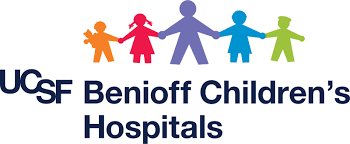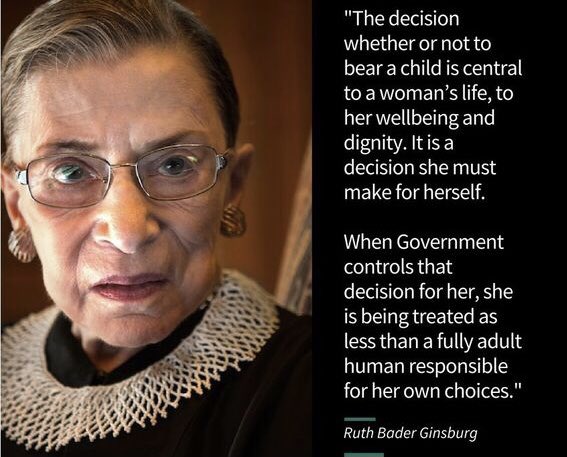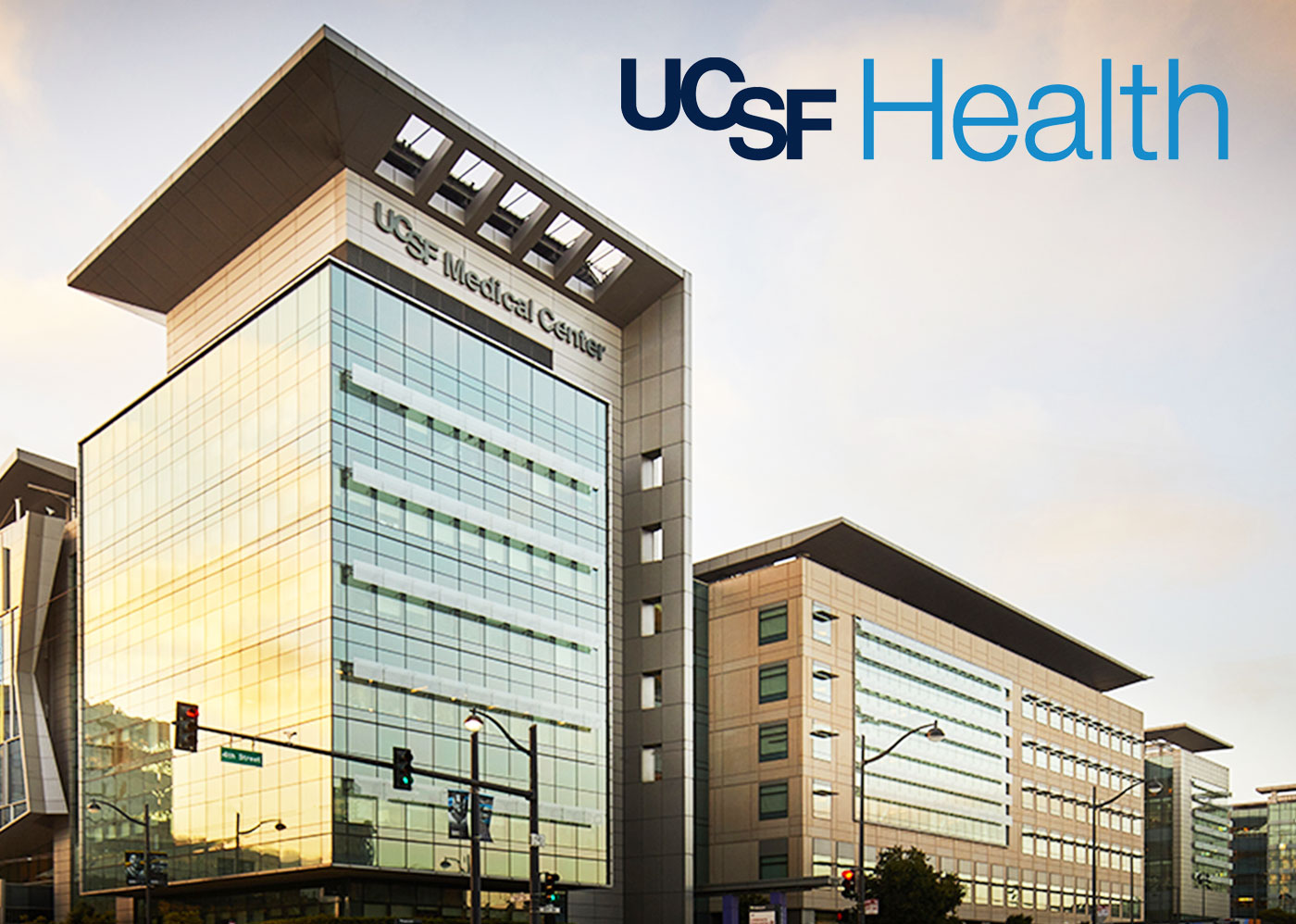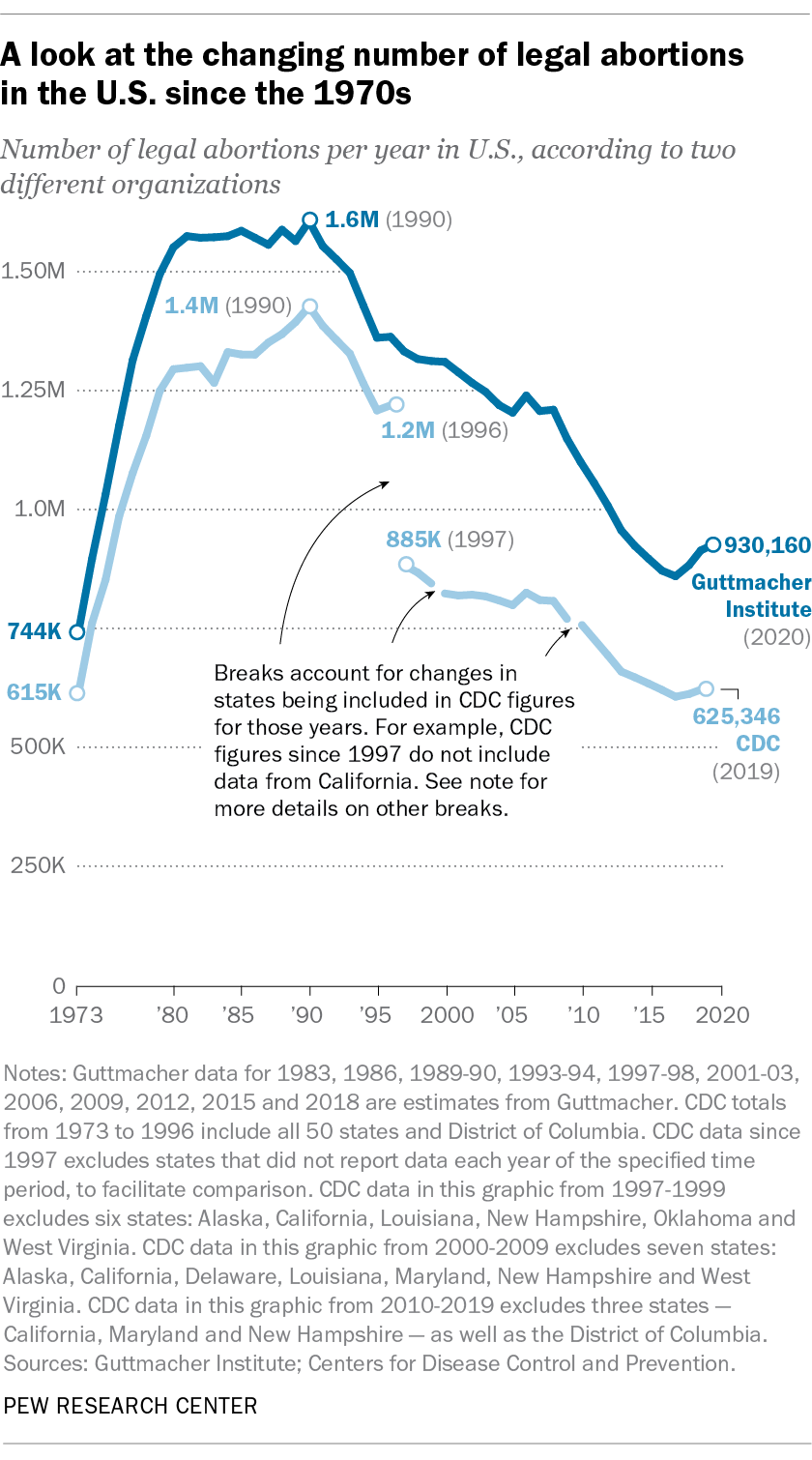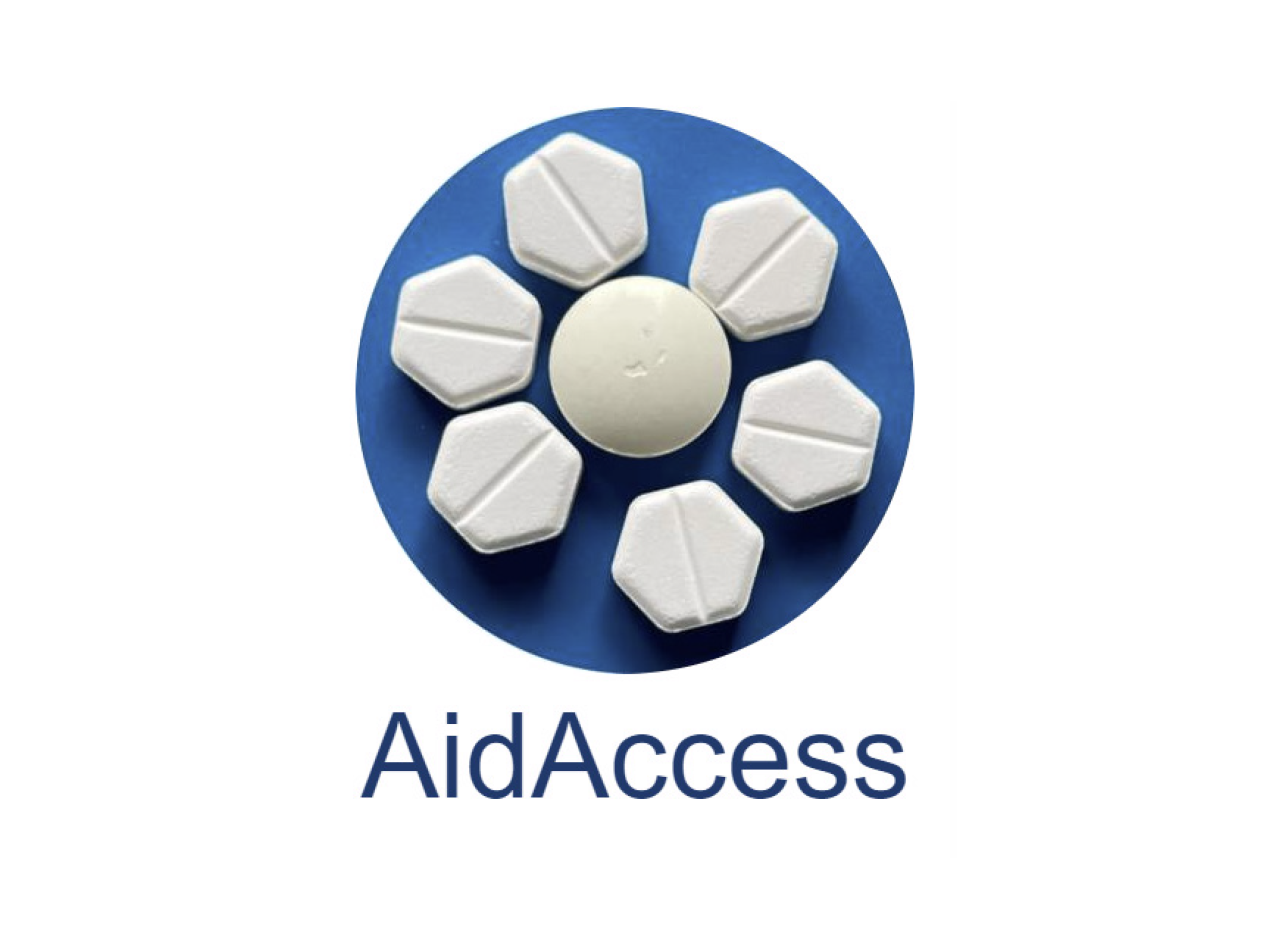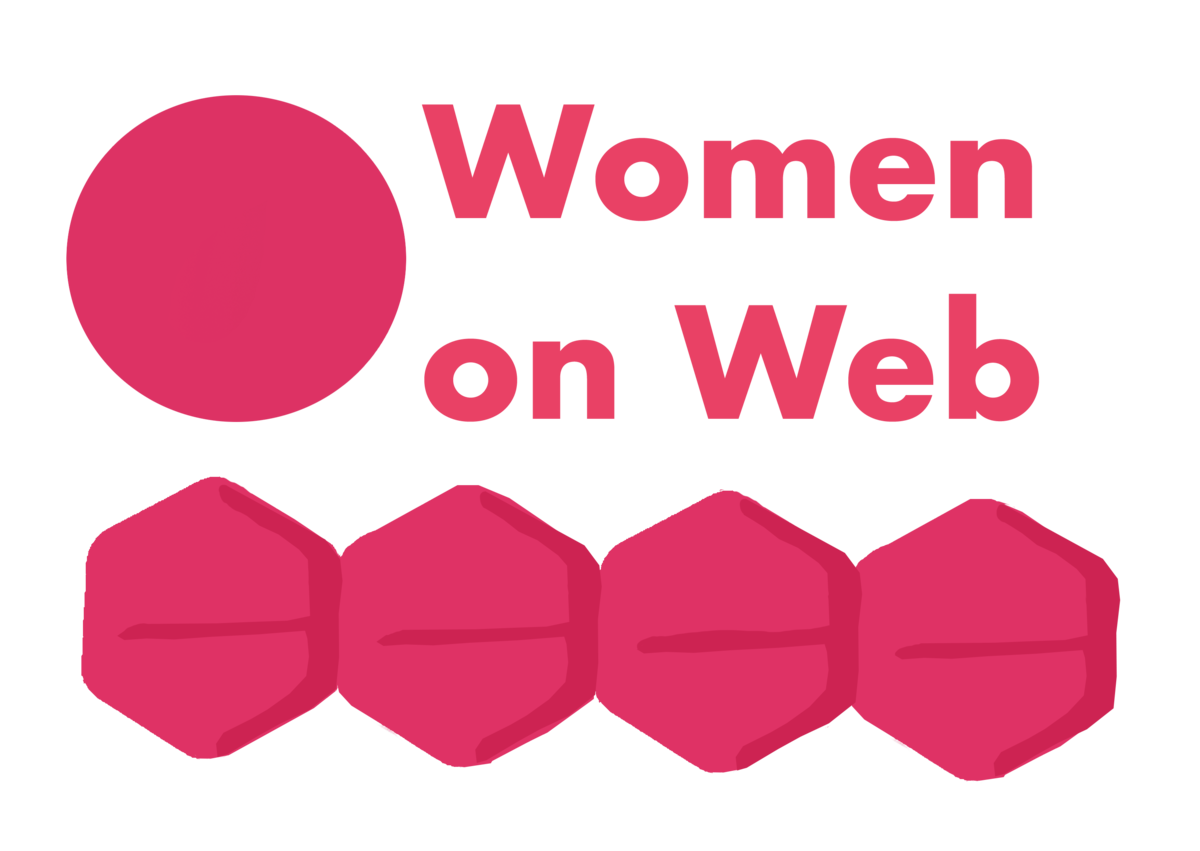Abortion Access Post-Roe
On June 24, 2022, the Supreme Court issued its decision in Dobbs v. Jackson Women’s Health, overturning Roe v. Wade, eliminating the landmark 1973 Supreme Court decision protecting the right to abortion. Across the nation, states are reacting by implementing bans or protecting access to abortion. It is now up to each state to establish laws protecting or restricting abortion in the absence of a federal standard. Access to safe legal abortions now depends on where you live and the national divide in access to abortion care has been intensified.
Here is a visual timeline of abortion laws in the US.
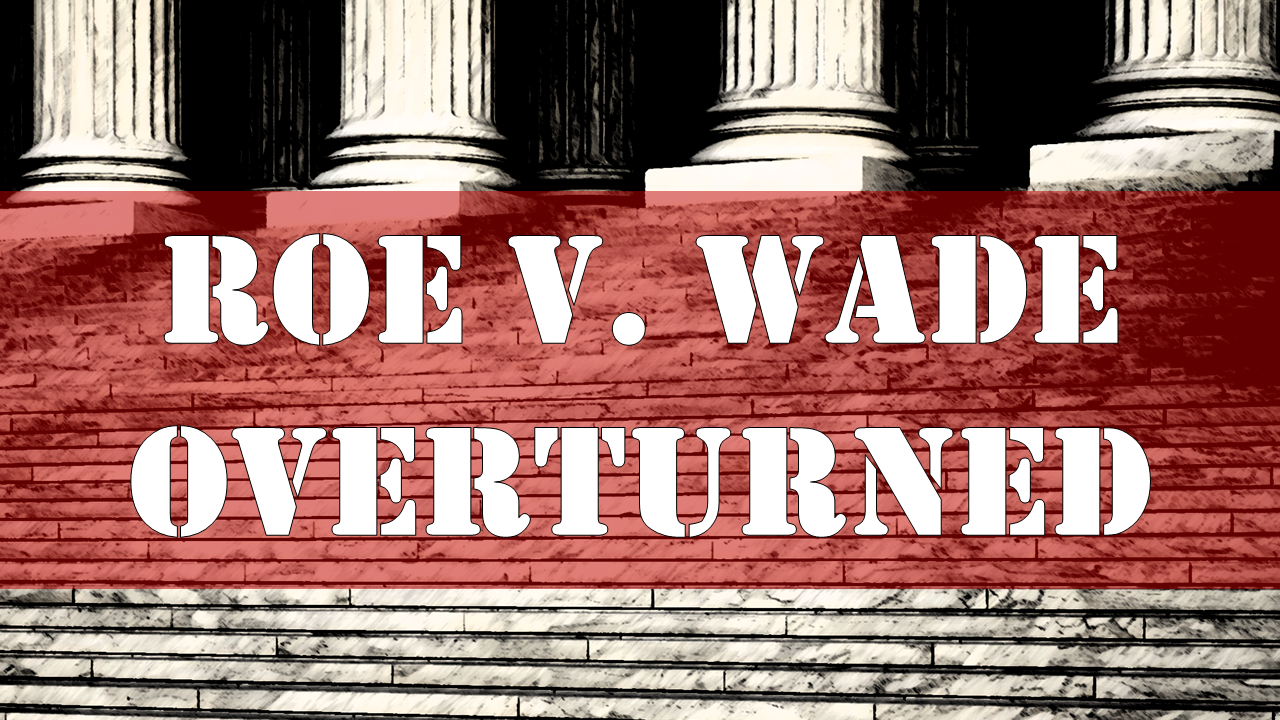
WHAT YOU NEED TO KNOW
As state abortion bans and restrictions are sweeping the country, it can be hard to figure out how and where to get the care you need. We’re here to make sure you understand these new laws and how they may affect your options for getting a safe, legal abortion.
WHERE can I get an abortion?
- If you're pregnant and seeking an abortion, you can find an abortion provider at AbortionFinder.org
- Here’s a link to see what clinics are close to you: www.prochoice.org.
Where can I get help PAYING for an abortion?
If you're worried about how to pay for an abortion, you can visit AbortionFunds.org
How can I find out what the ABORTION LAWS are in my state?
This state-by-state guide has the most up to date information about abortion laws. The Guttmacher Institute created an Interactive Map on US abortion policies and access after Roe.
Additional National Resources
- Abortion Care Network - Founded in 2008, Abortion Care Network (ACN) is the national association for independent community-based, abortion care providers and their allies. Together we work to ensure the rights of all people to experience respectful, dignified abortion care. Independent abortion providers care for the majority of people seeking abortion in the U.S. – often serving individuals and families with the fewest resources and in the most rural parts of our nation.
- National Abortion Federation - The Hotline (1-800-772-9100) provides unbiased information about abortion, referrals to quality providers, and financial assistance. It’s free and offers services to everyone, regardless of their individual situation.
- National Women's Law Center - fights for gender justice—in the courts, in public policy, and in our society—working across the issues that are central to the lives of women and girls.
- Plan C Pills - provides information resources for self-managed, at-home abortion with pills.
- Planned Parenthood - Our mission is to ensure all people have access to the care and resources they need to make informed decisions about their bodies, their lives, and their futures. Planned Parenthood delivers vital sexual and reproductive health care, sex education, and information to millions of people.
- Planned Parenthood Northern California - Planned Parenthood Northern California champions healthy communities and increases access to quality health care, information and reproductive freedom by providing medical services, education, and advocacy.
- Power to Decide - We work to ensure that all young people—no matter who they are, where they live, or what their economic status might be—have the power to decide if, when, and under what circumstances to get pregnant and have a child. We do this by increasing information, access, and opportunity.
- ReproductiveRights.gov - HHS launched this website on people's right to access reproductive healthcare, including birth control, abortion services, other preventive health services, and health insurance coverage
IMPACTS TO WOMEN OF COLOR, TRANSGENDER & NON-BINARY WOMEN
People of color will likely face the brunt of negative impact following the Supreme Court's overturning Roe v. Wade, abortion rights advocates warn. Abortion rights are an economic and health justice issue.
- In the most recent data from the CDC in 2019, Black women had the highest rate of abortions with 23.8 abortions per 1,000 women.
- Hispanic women had 11.7 abortions per 1,000 women, according to the CDC. White women had the lowest rate: 6.6 abortions per 1,000 women. The majority of these women -- 56.9% -- were in their 20s, according to the data.
- The country's most marginalized will be affected by looming abortion bans -- people already impacted by poverty, lack of health care access and racism in the health care system.
- Research has shown that racial and ethnic minorities often receive lower-quality health care than white people.
- Even when factors like income, age, condition, and insurance are comparable, research has shown that Black and brown people are still failed by the health care system.
- Black and Hispanic women are more likely than white women to experience health complications during pregnancy and childbirth, according to Blue Cross Blue Shield Association.
- A recent report from the Centers for Disease Control and Prevention also found that Black women died of maternal causes at nearly three times the rate of white women in 2020.
- The rate for Black women was 55.3 deaths per 100,000 in 2020 and the rate for white women was 19.1 deaths per 100,000, according to the CDC. For Black women, the rate increased nearly 26% from the year prior.
- Being pregnant presents some kind of risk. And unintended pregnancies increase the risk for poor maternal and infant outcomes, the CDC reports.
- Abortion bans will only push pregnant people into poverty or into debt. Pregnancy and childbirth alone can cost thousands of dollars.
- Black and Hispanic people are 1.8 and 1.5 times as likely to be in poverty than white people, according to 2019 census data.
- The Economic Policy Institute also found that Latinas earn 57 cents and Black women earn 65 cents for every dollar earned by white, non-Hispanic men.
ARTICLES
Black/African Americans
- Policy Report: Effects of abortion on the Black Community
- Black and Hispanic peole have the most to lose if Roe is overturned
- Facing higher teen pregnancy and maternal mortality rates, Black women will largely bear the brunt of abortion limits
- Roe v Wade ruling disproportionately hurts Black women
- Black women will suffer the most without Roe
Asian Americans
- Asians born in US have higher rate of abortions than Asian immigrants.
- Asian Americans sound off on overturning of Roe v Wade
- OpEd: Many Asian women will bear brunt of Roe's reversal
- AAPI Victory Alliance Statement
.
Transgender & Non-Binary Women
BIPOC Reproductive Justice Groups
UCSF RESOURCES
- Advancing New Standards in Reproductive Health - is a collaborative research group at UCSF which conducts rigorous, innovative social science research on complex and controversial issues related to reproduction. ANSIRH envisions a world in which all people have the resources, support, and freedom to achieve reproductive wellbeing.
- Bixby Center - is one of the few research institutions to unflinchingly address abortion, investigating multidimensional aspects of abortion care in the United States and globally. Our research demonstrated the efficacy, safety and acceptability of the combined use of mifepristone and misoprostol for early abortion. We have continued to lead clinical trials to improve abortion safety and access. And our researchers are examining the kinds of abortion care women prefer in specific contexts.
- Center for Pregnancy Options - provides abortion care and family planning services in a private, comfortable and sensitive environment. We care for women seeking elective abortion, treatment for miscarriage or fetal death, and pregnancy termination due to health problems of the fetus or mother.
- Medical Abortion - UCSF Health description of medical abortion
- Women's Options Center at Zuckerberg San Francisco General - San Francisco General’s abortion clinic provides both first- and second-trimester abortion care, including pill abortion (medication abortion). Because we are located within a trauma hospital, we have the resources to care safely for the most medically high-risk patients. As part of UCSF’s abortion and family planning care division, we pride ourselves on our safe, respectful, person-centered, evidence-based abortion services, with high levels of individual support.
- UCSF Advocates recently launched a digital campaign to urge state legislators to support three bills that help protect abortion access in California by ensuring protections for patients and providers. The campaign has already received enormous traction within the UCSF community.
WHITE HOUSE ADMINISTRATION
The White House Adminstration issued two Executive Orders to help protect abortion access. An Executive Order is a declaration by the president, which has the force of law, usually based on existing statutory powers. They do not require any action by the Congress or state legislature to take effect, and the legislature cannot overturn them. However, Executive Orders are not federal laws and can be cancelled revoked, or modified by the next President.
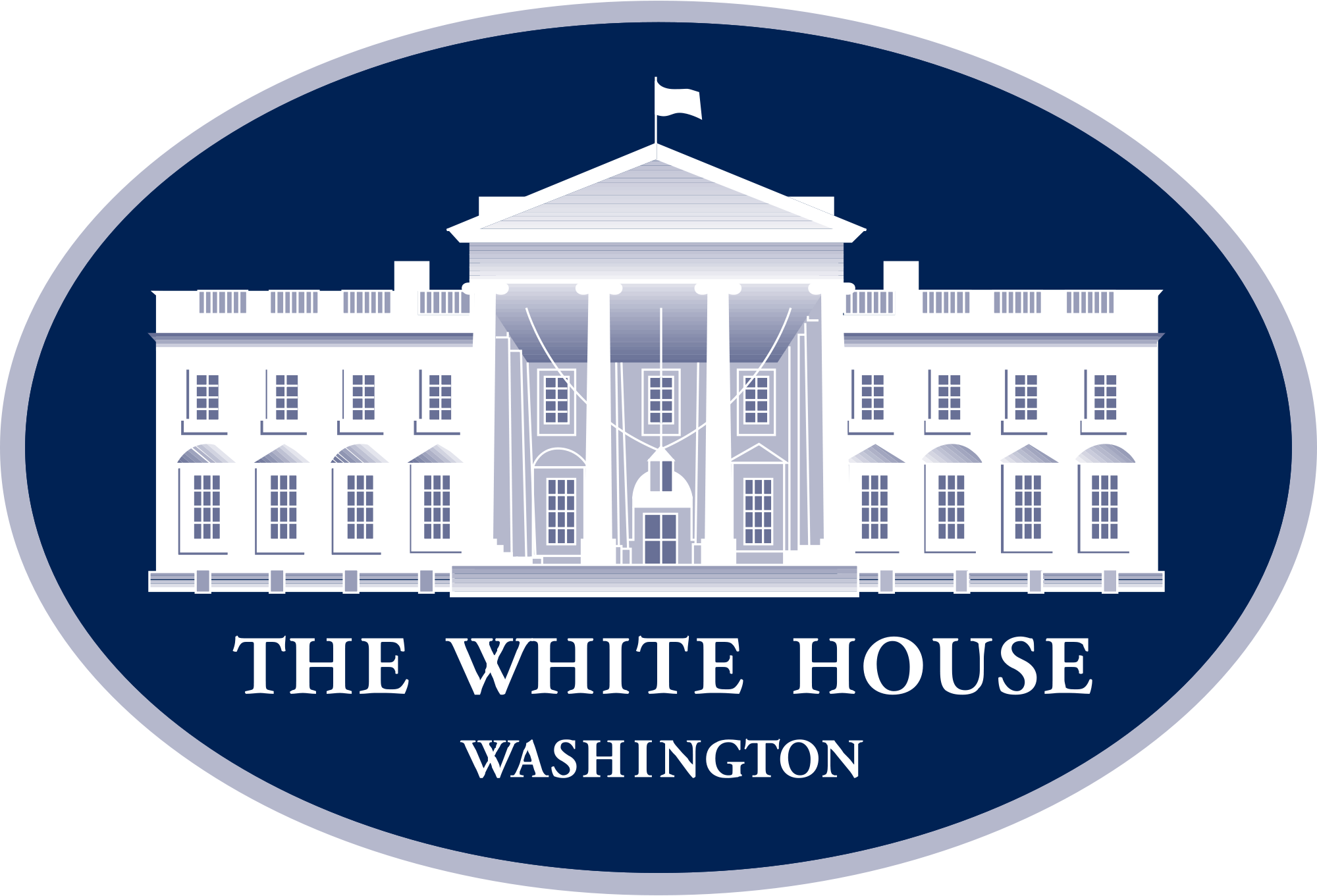
- Executive Order on Protecting Access to Reproductive Healthcare Services - July 8, 2022
- Safeguarding access to reproductive health care services, including abortion and contraception;
- Protecting the privacy of patients and their access to accurate information;
- Promoting the safety and security of patients, providers, and clinics; and
- Coordinating the implementation of Federal efforts to protect reproductive rights and access to health care.
- Executive Order on Securing Access to Reproductive and other Healthcare Services - August 3, 2022
- Support patients traveling out of state for medical care
- Ensure health care providers comply with federal non-discrimination law
- Promote research and data collection on maternal health outcomes
Additional actions taken by the White House Administration
- Supporting Providers and Clinics. The Secretary of Health and Human Services (HHS) directed all HHS agencies to ensure that all HHS-funded providers and clinics have appropriate training and resources to handle family planning needs, and announced nearly $3 million in new funding to bolster training and technical assistance for the nationwide network of Title X family planning providers.
- Defend the Right to Travel: On 6/24/22, President Biden reaffirmed the Attorney General’s statement that women must remain free to travel safely to another state to seek the care they need.
- Protect Emergency Medical Care. Depatment of Justice (DOJ) filed a lawsuit seeking to enjoin Idaho’s abortion prohibition to the extent that it makes abortion a crime even when necessary to prevent serious risks to the health of pregnant patients.
- Strengthen Nondiscrimination in Healthcare. HHS announced a proposed rule to strengthen nondiscrimination in health care.
- Issue Guidance to Retail Pharmacies. HHS issued guidance to roughly 60,000 U.S. retail pharmacies to remind them of their obligations under federal civil rights laws to ensure access to comprehensive reproductive health care services.
- Convene Attorneys to Defend Reproductive Rights. DOJ and the Office of White House Counsel convened more than 200 lawyers and advocates from private firms, bar associations, legal aid organizations, reproductive rights groups, and law schools across the country on Friday, July 29 for the first convening of pro-bono attorneys, as called for in the Executive Order.
- Promoting Access to Accurate Information. On the day of the Supreme Court’s decision, HHS launched ReproductiveRights.gov, which provides timely and accurate information about reproductive rights and access to reproductive health care. This includes know-your-rights information for patients and providers and promoting awareness of and access to family planning services, as well as guidance for how to file a patient privacy or nondiscrimination complaint with its Office for Civil Rights.
- Take Action Against Illegal Use and Sharing of Sensitive Data. The Federal Trade Commission committed to fully enforcing the law against illegal use and sharing of highly sensitive data, including location and health information contained in fertility and period tracking data.
- Protect Patient Privacy under HIPAA. HHS issued guidance to address how the HIPAA Privacy Rule protects the privacy of individuals’ protected health information, including information related to reproductive health care.
- Request Information on Data Privacy from Mobile Providers. The Federal Communications Commission Chairwoman wrote to the top 15 mobile providers requesting information about their data retention and data privacy policies and general practices, consistent with the President’s commitment to protecting Americans’ privacy.
- Launch a DOJ Reproductive Rights Task Force: The DOJ announced a Reproductive Rights Task Force, which will monitor and evaluate state and local actions that infringe on federal protections relating to the provision or pursuit of reproductive care, impair women’s ability to seek reproductive care where it’s legal, impair individuals’ ability to inform and counsel each other about the reproductive care that is available in other states, ban medication abortion, or impose criminal or civil liability on federal employees who provide legal reproductive health services.
- Providing Leave for Federal Workers Traveling for Medical Care. The Office of Personnel Management issued guidance affirming that paid sick leave can be taken to cover absences for travel to obtain reproductive health care.
- Protecting Access to Reproductive Health Care Services for Service members, DoD Civilians, and Military Families. The Department of Defense (DoD) issued a memo to the Force, DoD civilians and military families on ensuring access to essential women’s health care services.
Department of Justice also launched justice.gov/reproductive-rights, a webpage that provides a centralized online resource of the Department’s work to protect access to reproductive healthcare services.
For up-to-date information on your right to access reproductive health care, visit www.reproductiverights.gov
WHAT THE DATA SAYS
According to the CDC in 2019
- 629,898 abortions in US
- 11.4 abortions in the U.S. per 1,000 women ages 15 to 44
- Majority of women who had abortions (57%) were in their 20s, while about three-in-ten (31%) were in their 30s. Teens ages 13 to 19 accounted for 9% of those who had abortions, while women in their 40s accounted for 4%.
- The vast majority of women who had abortions in 2019 were unmarried (85%), while married women accounted for 15%
- 38% of all women who had abortions in 2019 were non-Hispanic Black, while 33% were non-Hispanic White, 21% were Hispanic, and 7% were of other races or ethnicities.
- 92.7% of abortions were performed at ≤13 weeks’ gestation; a smaller number of abortions (6.2%) were performed at 14–20 weeks’ gestation, and even fewer (<1.0%) were performed at ≥21 weeks’ gestation.
Additional Data Resources
ABORTION ACCESS INITIATIVES
Aid Access
Aid Access is a global service to provide information and prescriptions to women in need of a safe abortion. Aid Access started operating in March 2018 and received almost 40000 help requests from people in the United States. People requesting help are given information about available local services and funding possibilities, but many report being unable to access abortion services in their local communities. If they experience an undue burden to access local care, Dr. Gomperts provides a prescription for the required medicines which those seeking an abortion can have filled. Many of the people requesting help are young, raped, poor or living in situations of domestic violence.
Just the Pill
Just the Pill is a mobile reproductive health clinic out of Minneapolis Minnesota, that began mailing medication for abortion, birth control, and STI treatment. Appointments are booked by phone or computer for online consultations with licensed doctors. Medication is delivered to you directly through a mail order pharmacy.
Just The Pill announced a program called Abortion Delivered and vowed to deploy a fleet of mobile clinics to offer "mobile procedural abortions" along the border of states that impose restrictions.
Women on Waves
Women on Waves (WoW) is a Dutch nongovernmental organization (NGO) created in 1999 by Dutch physician Rebecca Gomperts, in order to bring reproductive health services, particularly non-surgical abortion services and education, to women in countries with restrictive abortion laws.Services are provided on a commissioned ship that contains a specially constructed mobile clinic, the A-Portable. When WoW visits a country, women make appointments, and are taken on board the ship. The ship then sails out approximately 20 km (12 miles), to international waters, where Dutch laws are in effect on board ships registered in the Netherlands. Once in international waters, the ship's medical personnel provide a range of reproductive health services that includes medical abortion.
Women on Web
Women on Web is an international online abortion service, providing access to safe abortion services.
Founded in 2005 by Dr. Rebecca Gomperts, Women on Web is a team of medical doctors, researchers, activists, and help desk members. Women on Web advocates for and facilitates access to contraception and safe abortion services to protect women's health and lives.
The mission of Women on Web is to provide safe, accessible and affordable online abortion care to women and people around the world. We work to catalyze procedural and legal change in abortion access through telemedicine, research, community outreach, and advocacy. We strive for a world where safe abortion care is accessible for all women and pregnant people, with respect and dignity.
TAKE ACTION
UCSF Advocates recently launched a campaign to urge state legislators to support three bills that help protect abortion access in California by ensuring protections for patients and providers.
Donate to Abortion Rights Groups
The National Network of Abortion Funds builds power with members to remove financial and logistical barriers to abortion access.
Fund independent Abortion Care Providers
Independent providers serve three out of every five people who have an abortion, yet they receive only a fraction of public support. The Keep Our Clinics campaign is the Abortion Care Network’s latest effort to protect access to care and support independent clinics across the country.
Take Action
Planned Parenthood organizations and partners have built out a map of distributed rapid response events.
"Abortion is Essential" Toolkit - Center for Reproductive Rights
Use this "Abortion is Essential" toolkit to spread the word about what's at stake for U.S. abortion rights and what you can do.
Contact your Federal Representative
Contact your House of Representative and let them know your stance on abortion.
